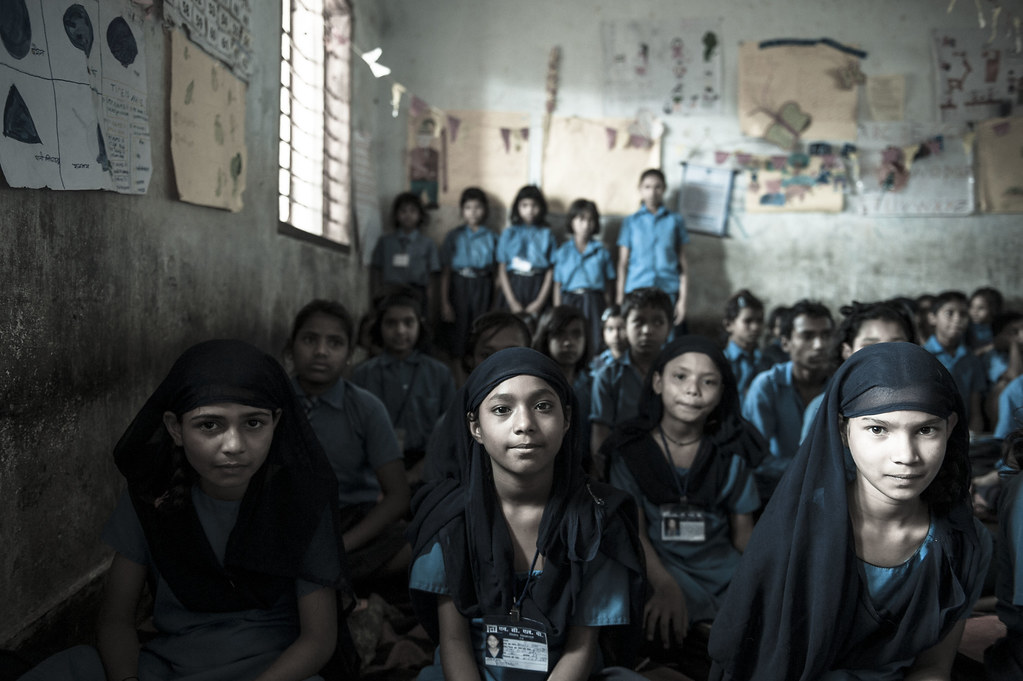‘Muslims Aren’t Good’: Religious Bullying Becoming a New Normal in Posh Schools

Sumaiya Ali, TwoCircles.net
New Delhi: “They tease me by saying Allah, Allah,” a fifth-grade student who studies in a popular girl’s school in Meerut, complained about her fellow students.
Instead of lodging a complaint with the class teacher, her mother advised her to take it lightly and better not react.
“Complaining about it won’t help. It will further make the children talk about how bad Muslims are,” she said, adding, “Through my daughter’s experience, I felt my community’s pain — which is something I never remember experiencing as a young person growing up here”.
She said the children who are indulging in such bullying are not the ones who deserve to be blamed. “It’s the society, the cinema, that has villainized Muslims with stereotypical attributes and by showing them in bad light,” the mother added.
It is not an isolated incident.
Another Muslim girl, who studies in a top school at Gurugram, too shared a similar incident. While returning home, a boy allegedly sat next to her in the school bus and began saying, “How bad the Quran is, and Muslims are not good people.”
And it did not happen once, as per the girl, he did so multiple times.
Unlike the mother mentioned above, this girl’s parents complained about the alleged harassment to a teacher, who assured action and clarified that such behaviour is dealt with by them with sensitivity.
The boy was told strictly to not bother her or hurl religious slurs.
Playgrounds and schools can be unsafe locations where kids can be bullied or isolated. Children frequently inflict harm on their friends by using disparities in appearance, skin colour, dietary habits, misogyny, Islamophobia, homophobia and casteism.
As a result of the growing hatred for Muslims in India and around the world, the children of the community are reportedly being singled out for harassment in upscale schools due to their religious identity.
Such instances of harassment leave a life-long impact on children. “Such experiences can result in profound and lasting anxiety, depression and even post-traumatic stress disorder (PTSD). Additionally, discrimination can exacerbate existing mental health conditions or predispose children to develop them later in life,” Shuchi Dixit, head counselor at Delhi-based Fortune Institute of International Business, told TwoCircles.net.
She said mental illnesses can manifest at any age but often begin during adolescence or early adulthood.
Maryum Khan, who has passed out of a convent school in Lucknow recently, shared what kind of back bitching used to be done about one of peers for wearing burqa (veil). There was a perceived notion that she belonged to a backward family.
At a time when adhering to Islam is a tightrope, Muslim students in schools often face the challenge of proving that they are not outcast or orthodox if they follow their religion.
Shaad Midhat, a video journalist, shared her experience, which has not faded over years. One of his teachers asked students if they take a bath every day. “She specifically looked at the Muslim students and said, ‘Do you take a bath on Friday? She was implying that Muslims bathe only once a week.”
Dixit stressed on how educators and parents play crucial roles in promoting understanding and respect for cultural and religious differences through open dialogue. “So, when instances like these occur, teachers should also be held accountable,” she said.
She referred to multiple surveys, revealing that some children would only make friends with their co-religious peers. “There are instances that the families do not approve of their children making friends with kids of different faiths,” she pointed out.
Children as young as five are being targeted, according to Nazia Erum, who spoke to 145 families in 12 locations and 100 students enrolled in 25 prestigious Delhi schools for authoring her book titled ‘Mothering a Muslim’.
She told the BBC that what she found during her research was shocking. “I did not think it was happening in these elite schools,” she stated with surprise and shock, asking, “How do you react when five or six-year-olds claim they were called terrorists or Pakistanis? And how do you complain to the school?”
She said one can call it a joke, which is supposed to be humorous and make one laugh, a subtle or a light-hearted conversation, but it’s not. “It is in fact bullying,” she said.
Among India’s 1.3 billion people, Muslims comprise 14.2% of the population and Hindus make up over 80%.
Although religious animosity has constantly simmered since 1947, when India and Pakistan were split off from one country, the two faiths have often coexisted amicably. The partition was brutal; religious bloodshed claimed thousands of lives.
While anti-Muslim remarks have been made throughout the 1990s, according to Erum, their tone and intensity have changed following the demolition of the Babri mosque by Hindu fundamentalist organizations and the ensuing Hindu-Muslim riots.
The media present a skewed narrative, portraying Muslims as “invaders, anti-national and a threat to national security”. At the same time, there is an increase in Hindu nationalist fervor.
“Fault lines have only gotten wider. Biases have become ingrained as a result of the divisive and polarising debates on television, and the same is now being transmitted from adults to youngsters,” she said.
Hence, she said, a Muslim child is picked out, shoved into a corner and labeled a Pakistani or terrorist in playgrounds, classrooms and school buses.
With regard to a solution to the problem, she said acknowledging the existence of an issue is the first step, followed by a discussion about it.
“Whataboutery won’t make a difference. If it is not resolved, it won't be limited to newspaper headlines as hate consumes everything and affects both the harasser and the harassed equally,” she concluded.
